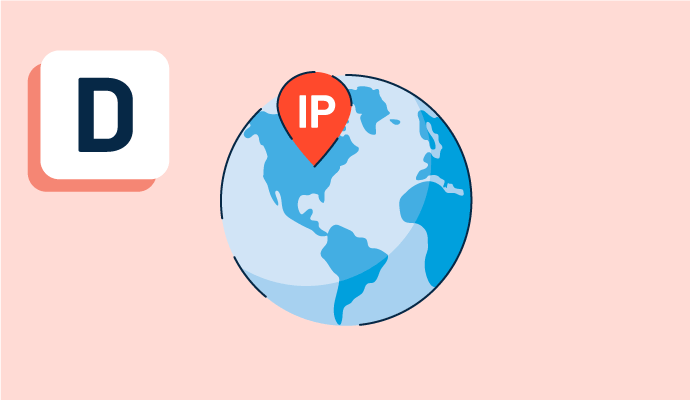What is a dedicated IP?
Internet Protocol (IP) is a unique string of identification numbers separated by periods given to each domain on the web. IP addresses are part of the domain name system (DNS). The DNS is an enormous address book. Domain names are mapped out to several IP addresses. For this reason, IP addresses can be used to identify end users.
A dedicated IP address is the permanent designation of a single and unchanging (IP address for a website provided by an internet service provider (ISP) or a network administrator. To cut down on the number of IP addresses, most internet sites and nodes share IP addresses since they are limited resources. Typically, a dedicated IP address is used only by a website that needs Secure Sockets Layer (SSL) verification.
Using a virtual private network (VPN) software end users often have a choice between using a shared IP address or a static IP address. With a shared IP address, the VPN provider allots the same shared IP address to all the users connected to a VPN server providing the end user some anonymity. In contrast to a shared IP address, customers also have the option to request a dedicated IP from the VPN providers which means they will get a unique, static IP address that is used exclusively by them but still hides their real IP address.
Benefits of using a dedicated IP
- Lower downtime: Every time the IP address refreshes, the user runs the risk of downtime from the server. Even though it is for a very short span, it can disrupt experiences for users. A dedicated IP helps in eliminating the risk of downtime.
- Complete control of the server: A dedicated IP provides the user with direct server access, which offers them a lot of options for customization. However, the organization must have the necessary technical skills for proper management of the server.
- Email services and business identity: Using a dedicated IP makes the sender’s email messages more private and unlikely to get blacklisted. Emails originating from dedicated IP addresses are trusted more by mail services as compared to emails from a shared IP address.
- Private SSL certificate: Secure e-commerce websites require SSL or TLS certificates to improve security. For example, many companies use secure sites for accepting credit card payments online. Web hosting providers generally offer a shared SSL certificate where clients can share the web host’s SSL.
- Secure remote access: Dedicated IPs provide secure and quick access to the organization’s resources. Though the user can access their PC from any location regardless of what type of IP address they have, a fixed address is required to maintain it. Otherwise, the program will not be able to find the user’s computer when the PC refreshes its dynamic address.
- Access to an FTP server: File Transfer Protocol (FTP) is a systematic and secure way to transfer data from one PC to another and provide access to files within the organization. Specific software must be installed for setting up an FTP site. If a user wants direct access to their website via FTP, they need to have a dedicated IP address to remotely access the server at any time.
Dedicated IP best practices
In order to get the maximum out of an IP, companies must follow these best practices:
- Evaluating the requirements while selecting the IP address: Possessing knowledge of how IP addresses work can assist in selecting the right solution. The organization also needs to consider the advantages and downsides. One of the few disadvantages of a dedicated IP address is the additional cost it comes with over a shared IP. If cost is not a serious concern, then the organization can reap the added benefits and convenience of a dedicated IP over a shared IP.
- Choosing the solution depending on the business: The buyer must opt for a dedicated IP if it is looking for secured network access, enhanced performance, and improved speeds, as servers are dedicated for the sole purpose of handling the organization’s website traffic. However, a shared IP address is more suited for a small business website with negligible restrictions and low traffic.
Dedicated IP vs. shared IP
While a dedicated or fixed IP is individual to the organization utilizing a dedicated server that handles their traffic only, a shared IP address or dynamic IP is shared between the organization and other users where all data is sent through the same server.
Following are some of the key differences between a dedicated and shared IP:
- Full control over messages: Sharing IP addresses with other good senders may boost the user’s reputation, however, sharing it with spammers adversely affects the user’s reputation. Unlike shared IP, dedicated IP users have control over messages and do not have to bother about other domains on their IP that may impact their IP reputation by sending spam emails or through other negative activities.
- Identification of IP issues: Using the same IP address for multiple domains can make it difficult to assess where an issue originated from and how to fix it. With a dedicated IP, the organization maintains its own domain and can easily identify the source of and solution to the issue.
- Volume and frequency of emails: While dedicated IPs are only an option for senders who send high and consistent volumes of email, shared IP can be used by both high and low volume email senders.
- Restricted access: Some larger internet service providers allow only dedicated IPs and not shared IPs. Using shared IP addresses can be a disadvantage in such cases.
- Cost effectiveness: Shared IP is well suited and economical for users starting to use and build their own domain until their domain has a proven track record. Dedicated IPs are more expensive as most credible email service providers (ESPs) charge a premium.
Dedicated IP discussions on G2

Anindita Sengupta
Anindita is a Senior Research Analyst at G2 specializing in cloud technologies, CAD & PLM software, and web hosting services. With over five years of experience in market research, Anindita has a proven track record of tracking, analyzing, sizing, and forecasting the industrial printer and B2B software markets. Her passion for technology and staying up-to-date with the latest software trends makes her an invaluable asset to B2B buyers and sellers of software. When she's not immersed in market research, Anindita loves to read and explore new destinations, constantly fueling her curiosity and creativity.

